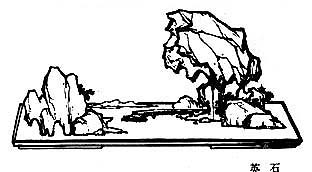易
經
Yi Jing 
 – I Ching, the Book of Changes
– I Ching, the Book of Changes
This famous system of 64 hexagrams plus their commentaries and transformations is at the root of Chinese thought. Tr. Wilhelm (en, fr).
| 58. 兌 Tui / The Joyous, Lake | ||||||||||||||||||||||||||||||||||||||||||||||||||||||||||||||||
| |||||||||||||||||||||||||||||||||||||||||||||||||||||||||||||||||
|
current binomial swap trig. opposite flip X leading master X constituent master
The Hexagram


above TUI THE JOYOUS, LAKE
below TUI THE JOYOUS, LAKE
This hexagram, like Sun, is one of the eight formed by doubling of a trigram. The trigram Tui denotes the youngest daughter; it is symbolized by the smiling lake, and its attribute is joyousness. Contrary to appearances, it is not the yielding quality of the top line that accounts for joy here. The attribute of the yielding or dark principle is not joy but melancholy. However, joy is indicated by the fact that there are two strong lines within, expressing themselves through the medium of gentleness.
True joy, therefore, rests on firmness and strength within, manifesting itself outwardly as yielding and gentle.
The Judgment


Perseverance is favorable.
The joyous mood is infectious and therefore brings success. But joy must be based on steadfastness if it is not to degenerate into uncontrolled mirth. Truth and strength must dwell in the heart, while gentleness reveals itself in social intercourse. In this way one assumes the right attitude toward God and man and achieves something. Under certain conditions, intimidation without gentleness may achieve something momentarily, but not for all time. When, on the other hand, the hearts of men are won by friendliness, they are led to take all hardships upon themselves willingly, and if need be will not shun death itself, so great is the power of joy over men.
The Image


The image of THE JOYOUS.
Thus the superior man joins with his friends
For discussion and practice.
A lake evaporates upward and thus gradually dries up; but when two lakes are joined they do not dry up so readily, for one replenishes the other. It is the same in the field of knowledge. Knowledge should be a refreshing and vitalizing force. It becomes so only through stimulating intercourse with congenial friends with whom one holds discussion and practices application of the truths of life. In this way learning becomes many-sided and takes on a cheerful lightness, whereas there is always something ponderous and one-sided about the learning of the self-taught.
Lower line


Contented joyousness. Good fortune.
A quiet, wordless, self-contained joy, desiring nothing from without and resting content with everything, remains free of all egotistic likes and dislikes. In this freedom lies good fortune, because it harbors the quiet security of a heart fortified within itself.
Second line


Sincere joyousness. Good fortune.
Remorse disappears.
We often find ourselves associating with inferior people in whose company we are tempted by pleasures that are inappropriate for the superior man. To participate in such pleasures would certainly bring remorse, for a superior man can find no real satisfaction in low pleasures. When, recognizing this, a man does not permit his will to swerve, so that he does not find such ways agreeable, not even dubious companions will venture to proffer any base pleasures, because he would not enjoy them. Thus every cause for regret is removed.
Third line


Coming joyousness. Misfortune.
True joy must spring from within. But if one is empty within and wholly given over to the world, idle pleasures come streaming in from without. This is what many people welcome as diversion. Those who lack inner stability and therefore need amusement, will always find opportunity of indulgence. They attract external pleasures by the emptiness of their natures. Thus they lose themselves more and more, which of course has bad results.
Fourth line


Joyousness that is weighed is not at peace.
After ridding himself of mistakes a man has joy.
Often a man finds himself weighing the choice between various kinds of pleasures, and so long as he has not decided which kind he will choose, the higher or the lower, he has no inner peace. Only when he clearly recognizes that passion brings suffering, can he make up his mind to turn away from the lower pleasures and to strive for the higher. Once this decision is sealed, he finds true joy and peace, and inner conflict is overcome.
Fifth line


Sincerity toward disintegrating influences is dangerous.
Dangerous elements approach even the best of men. If a man permits himself to have anything to do with them, their disintegrating influence acts slowly but surely, and inevitable brings dangers in its train. But if he recognizes the situation and can comprehend the danger, he knows how to protect himself and remains unharmed.
Upper line


Seductive joyousness.
A vain nature invites diverting pleasures and must suffer accordingly (cf. the six in the third place). If a man is unstable within, the pleasures of the world that he does not shun have so powerful an influence that he is swept along by them. Here it is no longer a question of danger, of good fortune or misfortune. He has given up direction of his own life, and what becomes of him depends upon chance and external influences.
e bizar, in urma cu un an mi-a aparut aceeasi predictie pentru proiectul R, care pana la urma s-a terminat destul de prost. intr-un fel. pentru mine, pana la urma, a fost folositor.

I Ching, the Book of Changes – Yi Jing I. 58. – Chinese on/off – Français/English
Alias Yijing, I Ching, Yi King, I Ging, Zhou yi, The Classic of Changes (Lynn), The Elemental Changes (Nylan), Le Livre des Changements (Javary), Das Buch der Wandlung.
The Book of Odes, The Analects, Great Learning, Doctrine of the Mean, Three-characters book, The Book of Changes, The Way and its Power, 300 Tang Poems, The Art of War, Thirty-Six Strategies
Welcome, help, notes, introduction, table.
Index – Contact – Top










